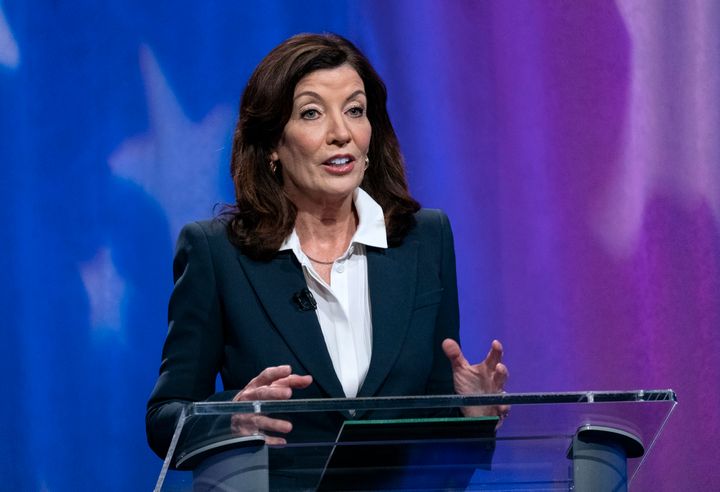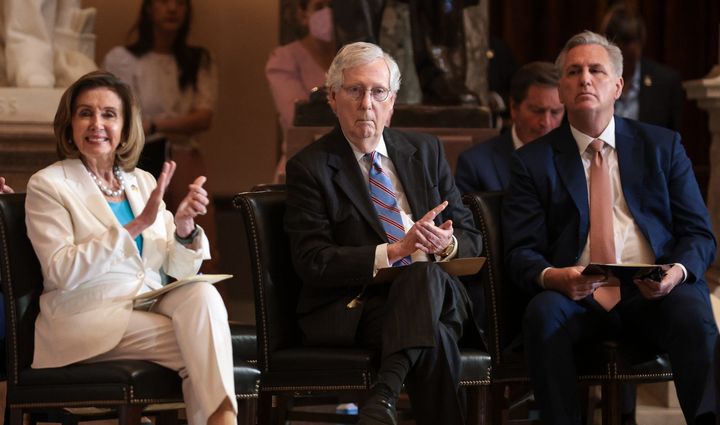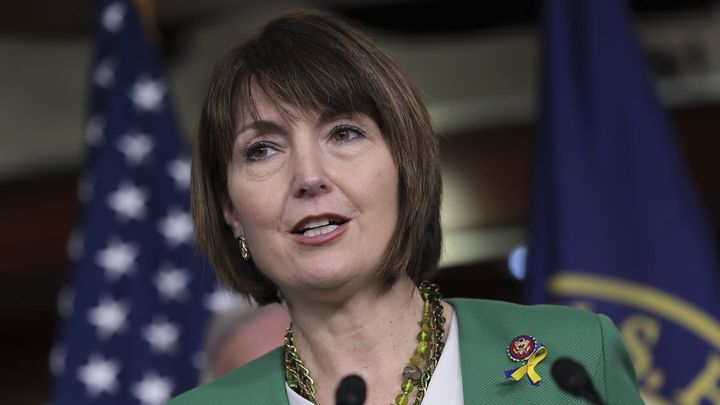New York Gov. Kathy Hochul (D) recently orchestrated one of the biggest taxpayer stadium subsidy deals of all time—using tribal funds to finance the pact, which could ultimately benefit her husband’s employer.
The arrangement doesn’t merely illustrate Hochul’s penchant for prioritizing business interests over marginalized New Yorkers. It is also the latest iteration of New York siphoning revenues from the Seneca Nation and trampling the tribe’s exclusive gaming rights.
In the New York state budget passed in April, Hochul earmarked more than a billion dollars in public funding to build a new stadium for her home city football team, the Buffalo Bills. The deal, struck between Hochul and the billionaire Pegula family that owns the team, will be the second-largest taxpayer contribution to a sports stadium in history. Of the project’s $1.4 billion in projected construction costs, New York’s government is putting up $850 million, or 60 percent of the total. Hundreds of millions of dollars more were inked for upkeep of the stadium throughout its 30-year lease, bringing the public’s total projected expense to be more than $1.1 billion.
Hochul’s household could benefit handsomely from the deal. Her husband, William Hochul, is general counsel and senior vice president at Delaware North, the Buffalo-based hospitality giant that has operated concessions at the Bills stadium for the past 30 years. While the new stadium does not yet have a hospitality vendor attached, Delaware North’s longtime management position puts it on the inside track to score the contract.
During the last primary debate for governor, conservative Democratic Rep. Tom Suozzi and progressive New York City Public Advocate Jumaane Williams repeatedly slammed Hochul over the high price tag for the Bills stadium deal—and the potential profits for her husband’s company.
What has received less attention is that the arrangement came at a steep cost to the Seneca Nation, a democratic government of 8,000 citizens and several territories located in Western New York. To get the stadium deal done, the Hochul administration forced the Seneca Nation to make a payment of nearly $565 million to the state by freezing the tribe’s bank accounts. The tribe had been holding the money in escrow, arising from a years-long legal dispute with the state over revenue sharing from tribal casinos, and its members decried what they called the state’s “overreaching” actions in freezing their finances.



